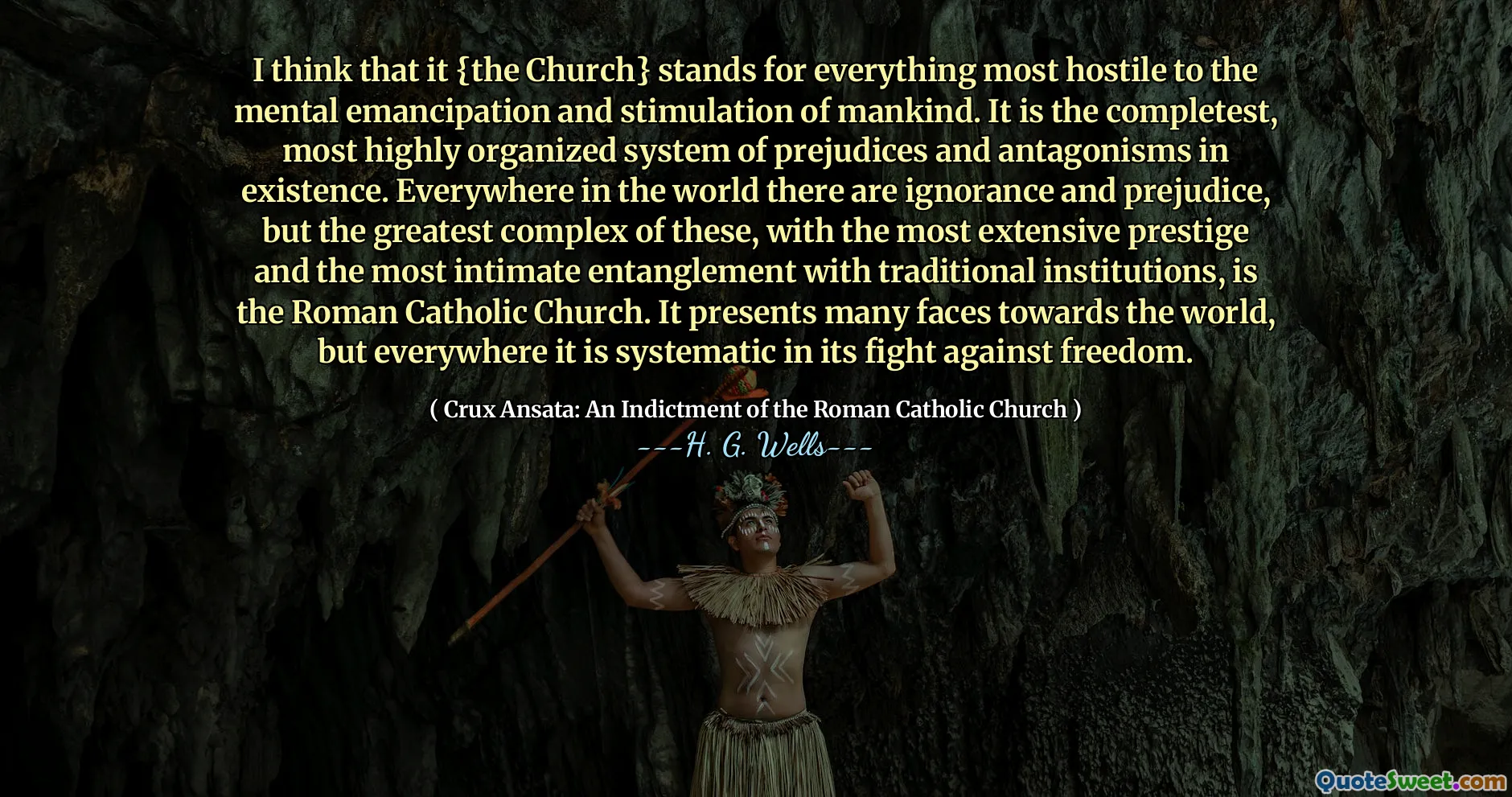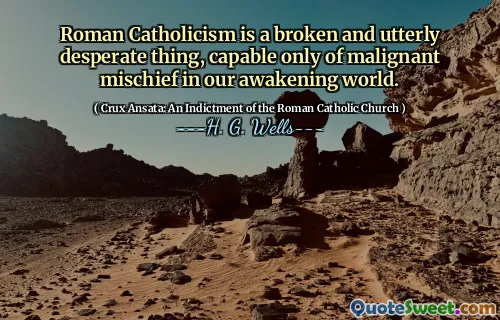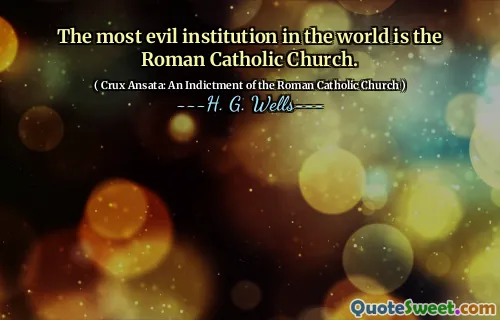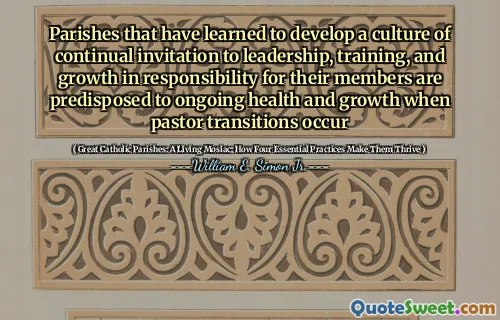
I think that it {the Church} stands for everything most hostile to the mental emancipation and stimulation of mankind. It is the completest, most highly organized system of prejudices and antagonisms in existence. Everywhere in the world there are ignorance and prejudice, but the greatest complex of these, with the most extensive prestige and the most intimate entanglement with traditional institutions, is the Roman Catholic Church. It presents many faces towards the world, but everywhere it is systematic in its fight against freedom.
In H.G. Wells' "Crux Ansata: An Indictment of the Roman Catholic Church," the author articulates a critical perspective on the Catholic Church, asserting that it embodies forces that stifle intellectual freedom and human progress. He posits that the Church represents a complex web of prejudices and opposition, suggesting that it is the most organized entity promoting ignorance and constraint. This perspective highlights Wells' view that rather than fostering enlightenment, the Church perpetuates traditional beliefs that inhibit mental liberation.
Wells argues that despite its varied appearances, the Church universally resists the advancement of freedom, revealing a systematic approach to maintaining its influence. He emphasizes that the Church's deeply ingrained connection with established institutions amplifies its power over societal thoughts and attitudes. By framing the Catholic Church in this light, Wells encourages readers to question the authority of such institutions in matters related to knowledge and personal autonomy.





